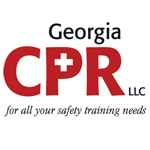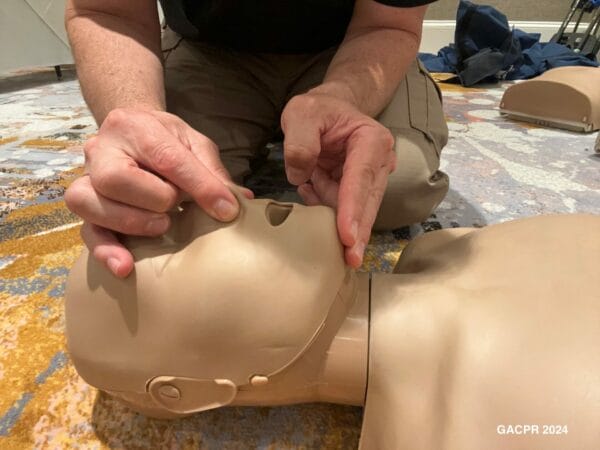“I heard they got rid of the breaths in CPR” is the most common statement I hear while chatting with students who have arrived early to learn CPR skills in one of our classes. The media has done a great job in making news out of CPR, which is great for awareness, but they haven’t done a great job in getting the details correct. CPR Skills still include the use of ventilations, or breaths during CPR, but there are some caveats to the relatively new guideline. Those of us who teach CPR Skills know that skipping breaths is only part of the story.
Here is the deal with the breaths
In 2010, The American Heart Association released new guidelines that included elimination of breaths for untrained bystanders. Their thinking was based on studies that show a reluctance to help in those who think they need to put their mouth on another person’s mouth in order to help. That is certainly fair. Mouth to mouth breath’s have been the punch line of countless jokes and certainly an apprehension of students in CPR classes since it’s inception. They also found that panic was a major contributor in the avoidance to help in an emergency. Skipping the breaths and making the procedure simpler is another effort to reduce panic and increase likelihood of bystander help.
Another part of the puzzle includes the bystander’s inability to perform quality breaths in a timely manner. While doing CPR Compressions, blood pressure in the body is increased. Any interruption of CPR Compressions allows blood pressure to drop down the drain. If performing breaths, they need to be effective and quick. The amount of time between sets of compressions needs to be minimal.
Confusion from lack of quality training?
I think a lot of the issue has been one of quality control in CPR classes. CPR Skills training in CPR classes isn’t that difficult, and in Georgia CPR’s classes it is even fun. It is important for instructors to take the few minutes to instruct and empower the CPR skills within the guideline.
Having said that, in our CPR classes, we always let students know that if they are having a tough time with getting breaths done on their patients, or a tough time bringing ourselves to actually do the breaths, we should use the American Heart Association’s “opt out” as I call it. We let students know that the decision to skip the breaths should be an easy decision to make in order to empower our decision to help using hands only CPR.
Just skip the breath’s if they are an issue for you. If you can do the breaths and are willing, they are better. If you can do the breaths well and you are ok to do them, do them, because they are better. Remember, BLS for Healthcare Providers is a CPR class for those who work in a healthcare setting. In BLS, participants must demonstrate the ability to provide breaths. During CPR scenarios, they must perform breaths. Breaths are included in the guidelines because they help when done correctly.
Breaths for lay responders however is different. Empowering oneself to do their best in an emergency outweighs the need to perform all CPR skills perfectly.. I use an analogy that gets a smile as well as the point across to the students. Breaths are like icing on a cake. Icing on cake is good – but if you put a cake in front of me without icing, I’m still going to eat the whole thing.


